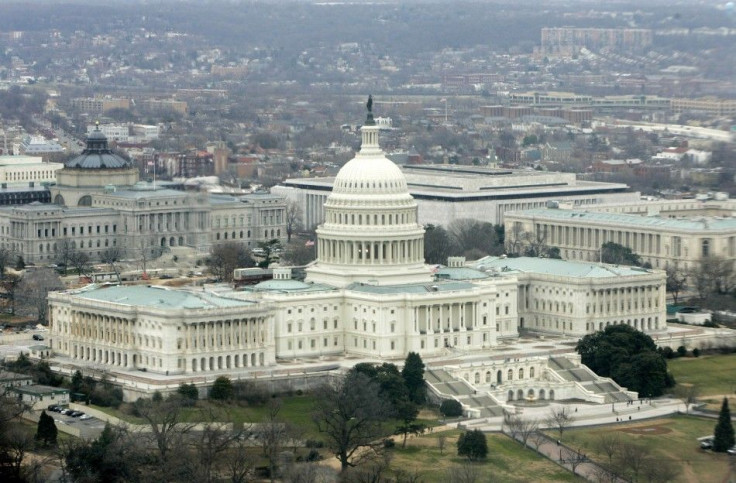Super Committee Republicans Seek $2.2 Trillion In Cuts

Republican members of the deficit reduction super committee presented a plan that would shrink the budget gap by $2.2 trillion over a decade exclusively through spending cuts, according to various reports.
The proposed reduction includes $600 billion in changes to entitlements such as Medicare, $250 billion in cuts to discretionary spending, as well as $640 billion in new revenue through user fees and the assumption of an improved economy generating a bump in tax revenue.
The GOP plan presents itself as a counteroffer to the $3 trillion deficit reduction proposal introduced by Democrats Wednesday, which included a mix of spending cuts and tax increases.
Democrats Volley-Back a Swift Rejection, in Kind
According to reports, Democrats rejected the proposal with the same swiftness that their offer was shot down.
That doesn't sound like anything that would even be in the league, said House Minority Leader Nancy Pelosi, D-Calif., according to The L.A. Times.
The super committee's ability to reach an agreement by its Nov. 23 deadline hinges on a common sticking point -- tax increases.
I expect that it's going to be very difficult to get to an outcome, but I am committed to getting to an outcome, said Majority Leader John Boehner, R-Ohio.
Boehner is among three Congressional leaders who have stepped in to guide the super committee to a viable conclusion.
The super committee was established as part of a deficit reduction deal, the Budget Control Act, in exchange for raising the nation's debt ceiling on Aug. 2. While the government was allowed to borrow up to $2.4 trillion more through 2013, the super committee was charged with reaching a bipartisan consensus on $1.2 trillion in deficit reduction over the next decade. Congress then has until Dec. 23 to pass the recommendations, otherwise trigger cuts, in the form of slashes to defense spending and Medicare benefits, would be automatically enacted.
© Copyright IBTimes 2025. All rights reserved.





















